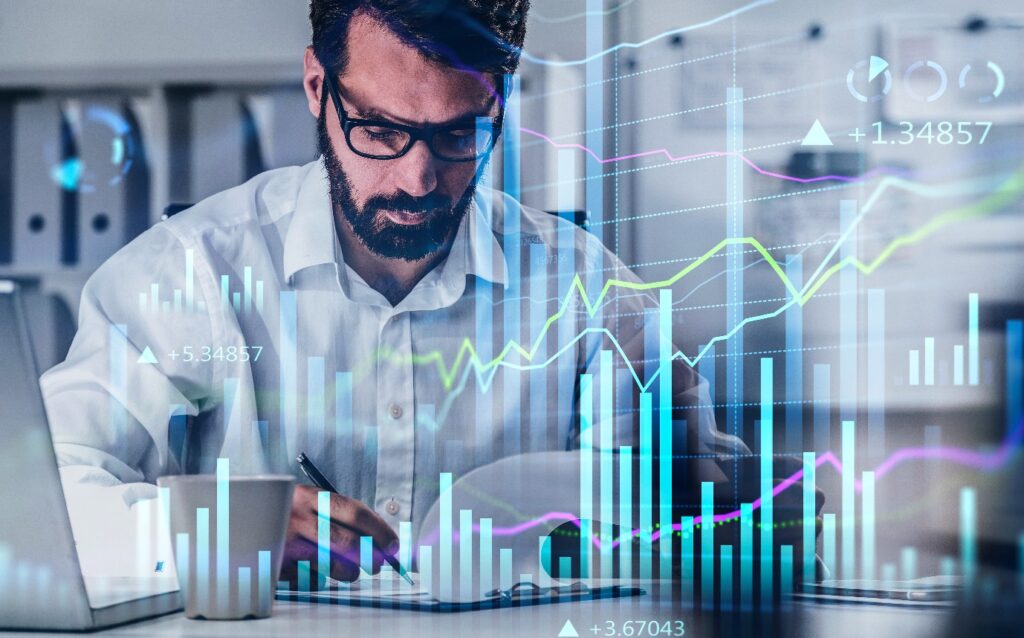Revealed — A day in the life of a forex trader

The foreign exchange (forex) market can prove to be extremely profitable, which is why so many individuals chose to become professional forex traders.
The aim of a forex trader is to open a position in the market and profit from price movements that occur, using careful strategical planning, informed by technical and fundamental analysis. Professional forex traders have extensive experience, enabling them to generate an income from their trades.
If you’re a first-time investor looking to trade, you won’t need this level of expertise, but we recommend that you find out more about forex trading on Plus500, for example, before you open a position.
Many full-time forex traders choose to dedicate their time to managing private accounts, meaning they will oversee personal and family funds, or take the responsibility for a share of another party’s capital.
Traders that do this type of work have the freedom to work from home, and this article will give you an insight into what a typical day in the life of a professional forex trader looks like.
Keep reading to find out more.
Key preparation prior to trade
The forex market is open for trade 24 hours per day, five days per week, which means that traders need to be vigilant and focussed. In fact, it would be virtually impossible for traders to watch the market around the clock and therefore, they tend to focus their attention onjust a few trading pairs during specific portions of the day.
Different currencies experience different periods of activity throughout the day. For example, the euro(EUR) is most active between 1.00am and 3.00am (eastern standard time). This means that individuals who trade in a currency pair involving the euro, will have to plan their day around this active timeframe.
The start of a trader’s day
Following on from our previous point, the time that a trader’s day begins will be dependant upon which currencies they trade in. Since the market is open 24 hours per day, traders will likely analysis the market and begin assessing their positions as soon as they wake up.
It’s unlikely that a professional trader will awake to any surprising changes with regards to their trades, since they will have strategically placed stop points, to avoid making significant losses whilst they are away from their screen.
Research
A large portion of trader’s time is dedicated to research, since the forex market is extremely volatile and susceptible to influence from external factors. Whilst some of these factors are unprecedented, many events that can affect positions in the market are periodic, plotted in an economic calendar.
Forex traders will prioritise different events and formulate a personal calendar, based upon their strategical approach. This will allow them to plan ahead for events that could affect their position, enabling them to intercept price movements to maximise the potential of making profits and avoiding losses.
Trading activity
Each trader’s approach will depend upon the strategy they employ. For example, day traders open and close all of their trades within one single day, meaning they are highly active within that day, in order to generate the greatest profits possible.
A day trader will also be most active when major economic data is released, and when central banks deliver updates, since this is when prices will tend to fluctuate the most.
On the other hand, traders who hold longer term positions in the market will be largely inactive throughout the day. Although they will continue to plan and research, they will not adjust their positions until key price zones are reached.
Traders will review their decisions and positions once their trading session has come to an end. This is an important part of each and every trading day, since it enables them to assess the market’s movements and their own performance, to help them to make better informed decisions in the future.
—
Some of the world’s most wealthy individuals have made their fortunes trading in the forex market professionally, but this requires a lot of skill.
If you’re considering investing in some of the world’s major currency pairs, you can do so using forexcontracts for difference (CFDs), which will enable you to gain a position in the market without owning the underlying asset itself.
Before you invest, it is crucial that you undertake extensive research and understand how to analyse fundamental and technical data, to minimise the risk of generating losses.




